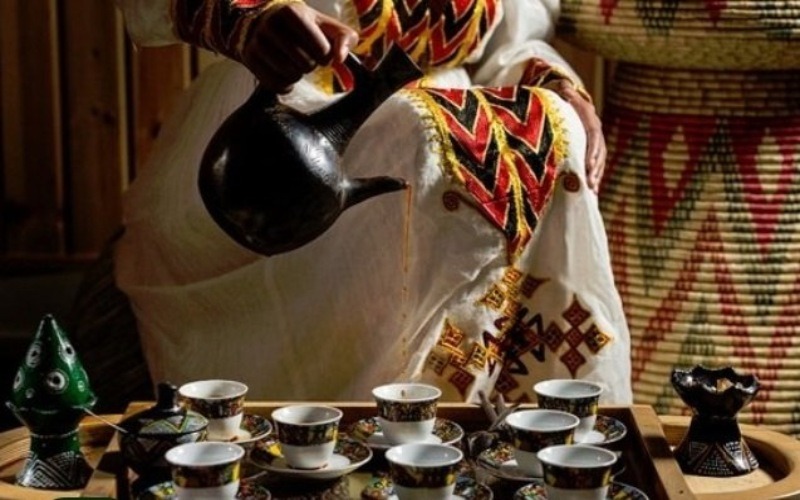Enkutatash: Inside Ethiopia’s timeless coffee ceremony

Coffee, now grown across the globe, traces its roots back to the ancient forests of Ethiopia’s Kaffa region and nowhere is that heritage honoured more beautifully than during Enkutatash, the Ethiopian New Year.
As the country ushers in the year 2018 on its calendar, families gather not just to mark a new beginning, but to take part in a tradition that is as old as the beans themselves: the Ethiopian coffee ceremony.
An invitation of respect
The coffee ceremony is more than a drink; it is an expression of hospitality, friendship, and cultural pride. In Ethiopia, Eritrea, and parts of Sudan, an invitation to attend a coffee ceremony is considered a mark of respect. During Enkutatash, the ritual becomes almost obligatory when visitors arrive, regardless of the hour.
Preparing the space
The Ethiopian coffee ceremony begins by creating a warm and inviting setting.
In some regions, fresh grass or flowers are spread on the floor, symbolising fertility and a connection to nature. Stools are arranged around the host to encourage a comfortable and communal gathering. This preparation links the people, the land, and the tradition, making the ceremony feel special and welcoming.
The preparation is slow and deliberate, transforming coffee from a quick refreshment into an occasion. The ceremony begins with the setting up of a rekbot, a low wooden stand decorated with fresh green grass and flowers. This small stage becomes the heart of the gathering.
The art of the ceremony
The hostess, usually dressed in the traditional white cotton garment with colourful woven borders, washes fresh green coffee beans and roasts them in a flat pan over a charcoal stove. The rich, nutty smell soon fills the room, mingling with the incense of frankincense or myrrh that is burned during the process.
Guests are invited to inhale the aroma of the roasted beans before they are ground by hand with a mortar and pestle and brewed in a jebena, a black clay coffee pot designed to keep the grounds at the bottom.
Grinding the coffee
After roasting, the beans are manually ground using a mortar and pestle. This requires time and patience, reflecting the importance of the ceremony. The beans are ground into small granules – finer than standard coffee grounds but coarser than espresso – to ensure the best flavour extraction during brewing. Once ground, the coffee is set aside, ready for the next stage.
Brewing the coffee
The finely ground coffee is placed into the jebena, then combined with hot water to brew. The long spout of the jebena allows the host to pour the coffee smoothly and gracefully, completing the ritual in a visually elegant and traditional manner.





